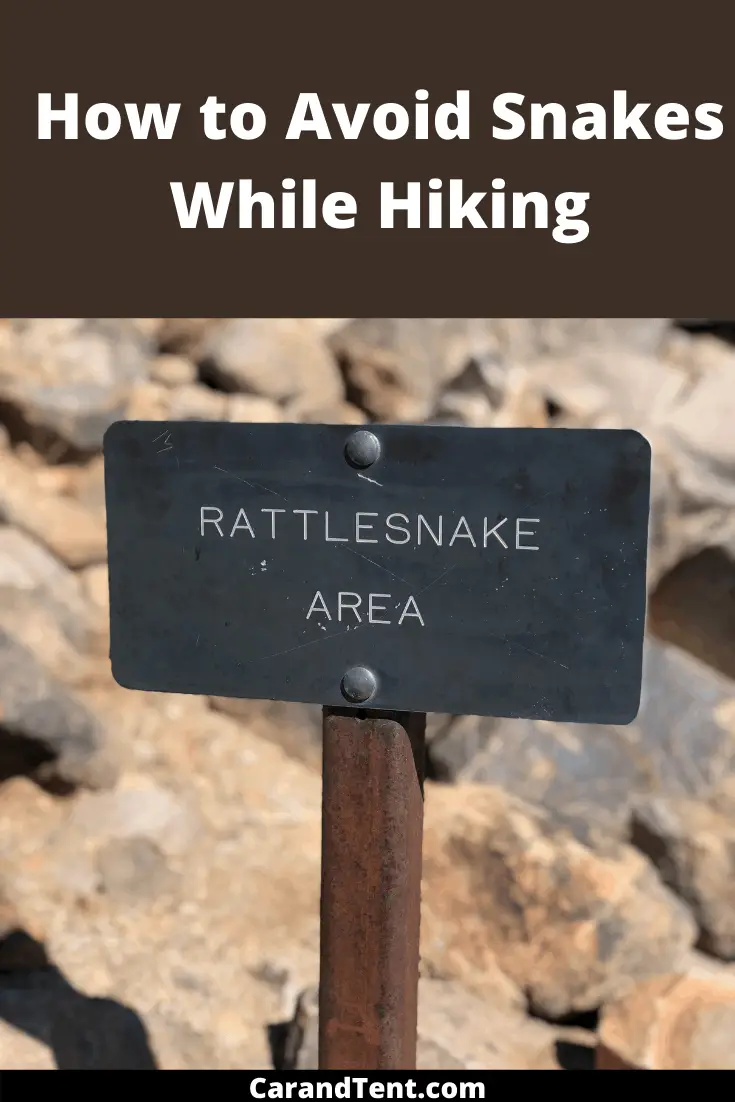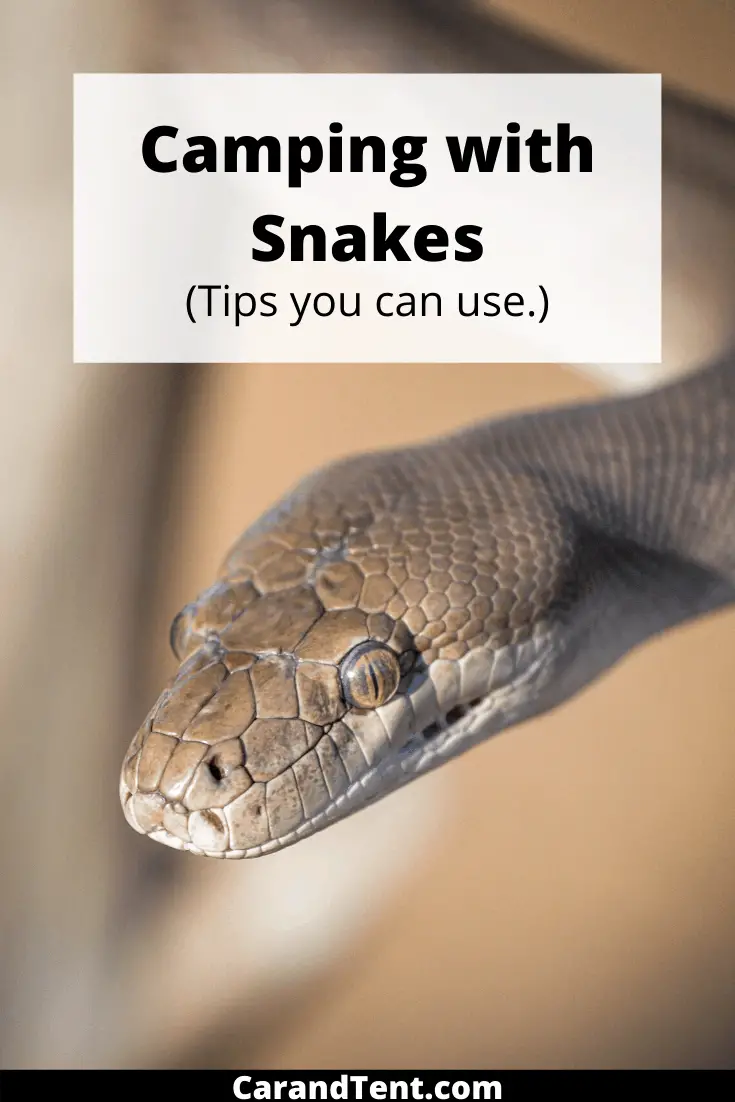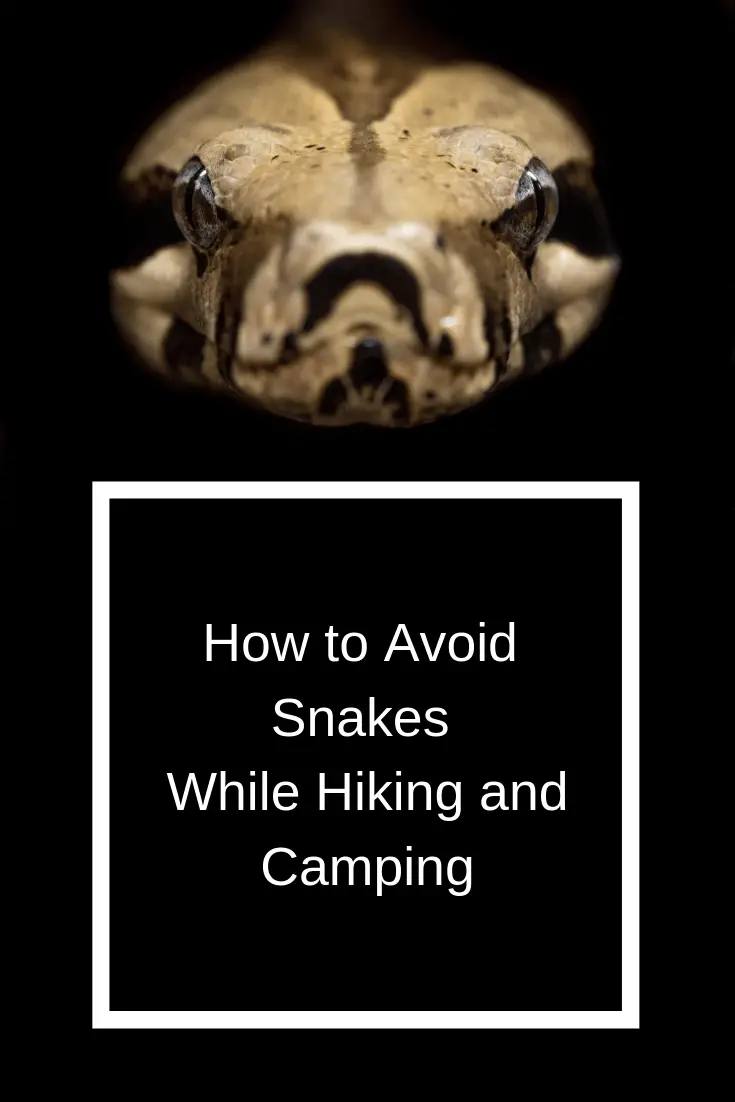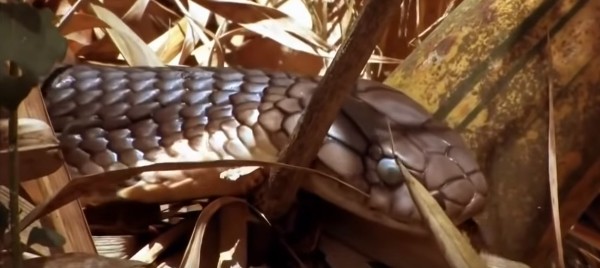
Snakes, you probably either love them or you hate them. Either way, we all know that encountering a snake in the wild can potentially be dangerous.
There are many snakes that have poisonous bites and even the ones that don’t carry poison can still hurt you. You’re never closer to snakes than when you’re out in their territory walking and sleeping among them.
So, how do you avoid snakes while enjoying the outdoors, you avoid them as best as possible? In this post, I’ll tell you how to avoid snakes while camping and hiking.
Table of Contents
How to Avoid Snakes When Hiking
Know What Areas to Avoid
Snakes, like all animals, are somewhat predictable. This predictability makes them easier to avoid because we know where they’re likely to be and when they’re likely to be there.
Here is some quick information you can use on your hike.
Snakes in the Morning – In the morning, snakes are usually trying to warm themselves in the sun. This means you might find them out in direct sunlight on the trail or up on a rock somewhere.
Snakes in the Afternoon – By the time late afternoon rolls around, the sun is usually too hot for the snakes so they’ll usually move off to somewhere a little less sunny. In this case, you might find them resting underneath of a log or a rock face.
Snakes in the Evening and at Night – Snakes are nocturnal so they’ll be on the hunt at night. If there is water nearby, they’ll almost certainly be near it.
Keep this information in mind when you’re out on a hike. If it is early morning, always scan the trail as some snakes might be lying directly on it and they are often camouflaged even when out in the open so you might not see them if you’re not looking for them.
In the afternoon, be especially careful around logs under trees, and under rock faces. At night, be wary of hiking next to streams and lakes.
Stay on the Trail
It is easier to spot a snake on the trail than it is to spot one off-trail. This is especially true in wooded areas where a snake might blend in with the trees and the bushes.
Also, when you’re on a well-frequented trail, there is a good chance that other hikers have already scared any snakes away from the trail. If they haven’t, hopefully, the sound of your footsteps will scare the snake away from both you and any other hikers that might pass by that way.
And finally, if you are bitten by a poisonous snake while hiking, being on the trail increases the likelihood that you’ll be found by other hikers as well as emergency services.
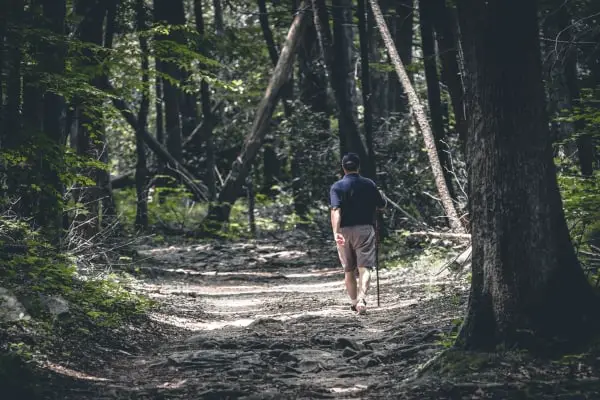
Be Loud
Humans aren’t really a good source of food for snakes which means a snake will rarely ever seek a human out. In fact, most snakes try to get away from humans as quickly as possible.
Unfortunately, snakes don’t like to be surprised. Sneak up on a snake and you’ll probably be bitten. This can happen even if you’ve snuck up on them accidentally. To avoid this issue, make some noise while you’re on the trail. This will help alert snakes to your presence and is also helpful when you’re hiking or camping with bears as well.
Give Snakes a Chance to Move
If you see a snake while you’re on the trail, slow down and give them a chance to get out of the way. Most snakes will make an effort to get out of your way as soon as they sense your presence. If you’re still far away when you see them, make some noise with your feet so that they’ll hear you and move along.
However, if you’re close by when you first notice the snake, don’t stomp your feet as this might make you seem more threatening. In this case, avoid provoking an attack by backing away slowly.
Never Approach a Snake
If you see a snake, never approach it. Even if you think that the snake is actually dead, it is best to give it a wide berth. This is because some snakes will actually play dead and will strike you when you get close.
Also, even if the snake is dead it could still be going through death spasms which can actually lead to a poisonous bite. Getting bitten by a live snake is tragic while getting bitten by a dead snake is just careless.
Be Careful Where You Put Both Your Hands and Your Feet
While most people know to watch where they put their feet while hiking, many people forget about their hands. For example, you might get caught up in the moment while traversing a difficult trail and you may accidentally put your hand down on a rock or tree trunk that a snake happens to be laying on.
While hiking, never put your hands or feet down somewhere without checking for danger first. This will help keep you safe from snakes, spiders, and anything else that might want to bite you.
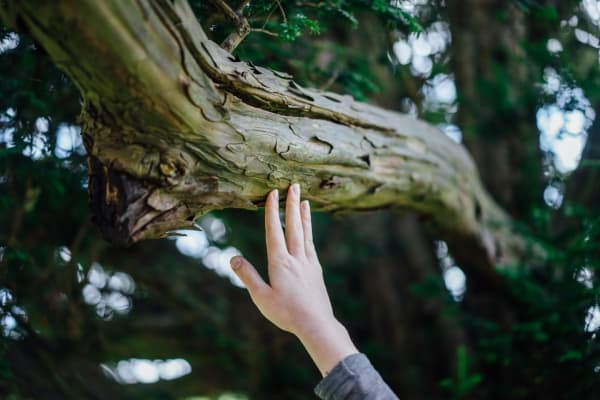
Wear Protective Clothing
Boots and gaiters can be used to help protect your feet and ankles. If you’re hiking through areas known for high snake populations, consider wearing tall snake-proof boots with long pants. While long pants won’t stop a snake bite, it may reduce the amount of venom that is injected into you when you are bitten and tall boots may prevent you from being bitten at all.
How to Avoid Snakes When Camping
Choose a Good Campsite and Inspect the Area Before Setting Up
After you’ve hiked to the place you intend to camp, you’ll want to scout out a good campsite that is less likely to have snakes. Remember, snakes are likely to hunt near water at night and they are likely to hide under rocks, logs, and other shaded areas during the day.
If you set up camp next to a fallen log, you may be setting up next to the home of a snake. This doesn’t mean that you can’t set up camp near rocks, logs, and water, it just means that you should be careful when doing so.
Give snakes the chance to move out of the area by moving into it slowly. Once you’re in the area you’d like to set up camp in, carefully check under fallen logs and rocks for any snakes that may still be in the area. If you do see a snake, carefully back out of the area and set up camp somewhere else.
Keep Your Tent Closed
Opening and closing your tent over and over again can get old and you may be tempted to leave it open from time to time. You might think, “I’ll only be a minute, so I’ll just leave my tent open”.
However, it only takes a minute for a snake to slip into your tent unnoticed. Leave your tent open for a minute and you may spend the next hour trying to get it out of there without getting bitten.
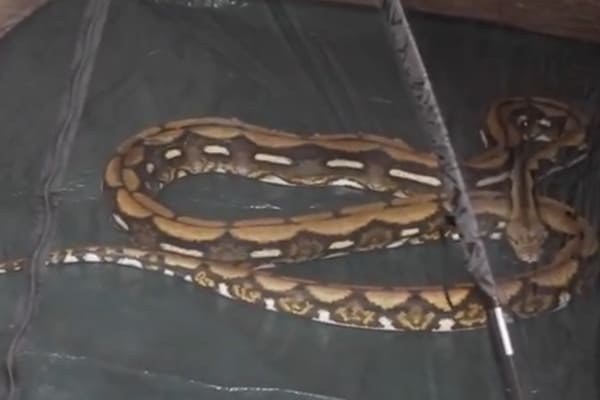
Keep Your Gear Secure
Snakes aren’t as particular about where they sleep as we are. A snake will happily crawl into your backpack or even your shoes just as happily as they’ll crawl into your tent. Whenever possible, place all of your gear inside of your closed tent. If you do leave gear outside of the tent, make sure it is closed tightly.
Light Your Campsite Up
It is difficult to spot a snake in the daylight but it is even harder to spot a snake at night. Make things easy on yourself by lighting your campsite up and by carrying a flashlight or wearing a headlight while moving about your campsite. This will make it easier for both you and the snake to see and avoid each other.
Properly Store Your Food
Snakes probably aren’t going to go after your dinner. The problem is that mice and other rodents will. Attract these critters and the snakes will surely come after them. Not only this, but you should be storing your food properly anyway as this will keep you, your food, your gear, and even the animals safe from harm.
Shake Everything
Sometimes you won’t have room to store your gear inside of your tent. Other times, you’ll simply forget to store your gear inside of your tent. In these cases, it is always best to assume that a snake may have gotten into it. Pick up everything and give it a thorough shaking before putting it back on. This simple step may just help to keep you from putting your foot into a snake-filled boot.
Final Thoughts
In most cases, getting bitten by a snake is optional. Opt to stay vigilant and wary of snakes and you can usually avoid them altogether. Opt to move carelessly through the wilderness and you may be opting to get bitten.
